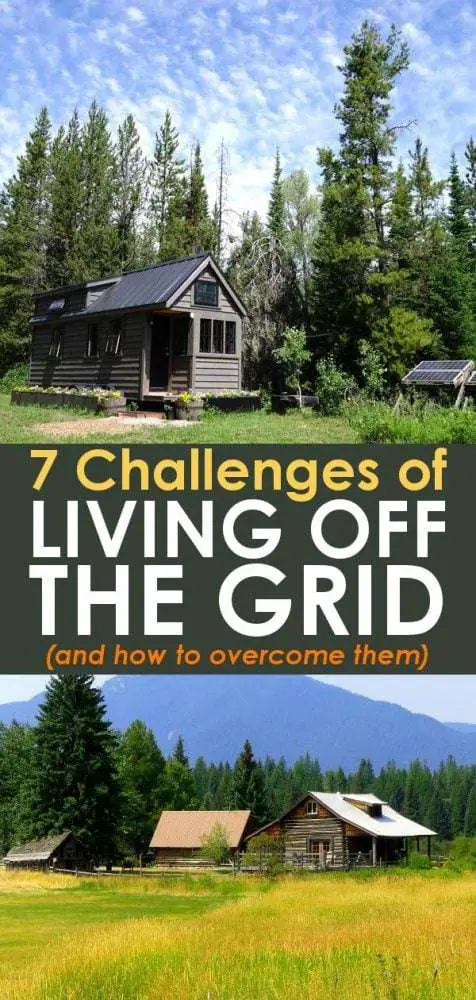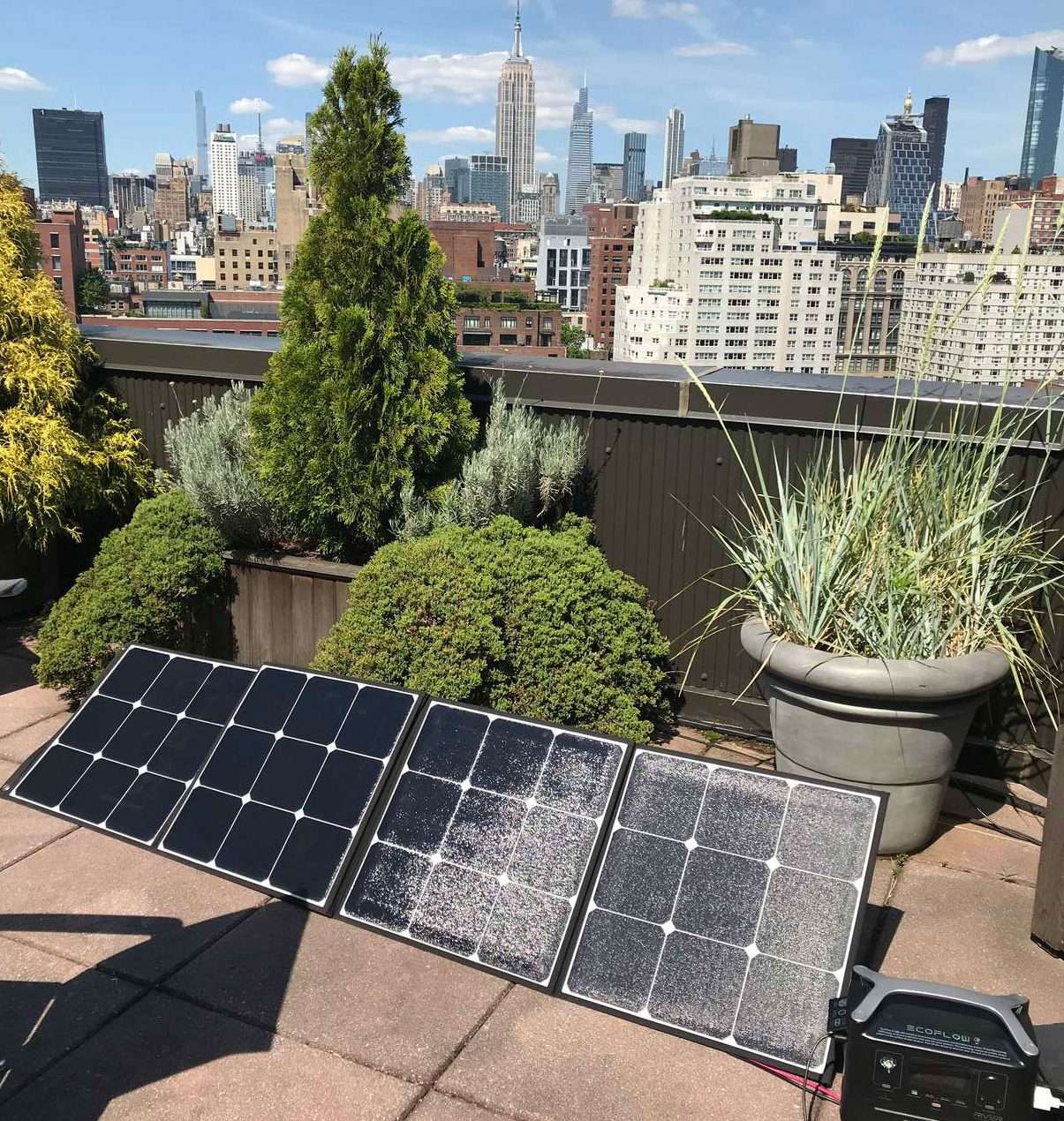Living off the grid in an apartment comes with its fair share of challenges. With limited space for power generation and food production, apartment dwellers face additional hurdles when it comes to self-sufficiency. First and foremost, obtaining permission from both the landlord and neighbors is crucial for setting up solar panels, rainwater harvesting systems, and gardens. While complete disconnection from the grid might not be possible, it is still feasible to partially embrace off-grid living. This entails utilizing energy-efficient appliances and lighting, maximizing natural light usage, and adopting energy-saving practices to minimize energy consumption. Moreover, with limited space available, apartment residents need to explore creative solutions like rooftop gardens, balcony gardens, and indoor window gardens for growing a sufficient amount of food. In short, successful off-grid living in apartments requires innovative thinking and efficient resource management.
Challenges of Living off the Grid in an Apartment
Living off the grid in an apartment may seem like a daunting task, as it presents a unique set of challenges. Limited space for power generation and food production, as well as the need for permissions to set up necessary systems, are some of the primary challenges that individuals face when embracing this lifestyle in an apartment setting. However, with resourcefulness and a strong commitment to sustainable living, it is possible to overcome these obstacles and achieve partial off-grid living.
Limited Space for Power Generation
One of the major obstacles of living off the grid in an apartment is the limited space available for power generation. Apartments generally have limited or no access to wide open spaces, which makes it challenging to set up large-scale solar panel systems or wind turbines. These renewable energy sources are vital for generating electricity and living a self-sustaining lifestyle. However, even with limited space, there are still options available. Compact and efficient solar panels can be installed on balconies or mounted on rooftops to capture the available sunlight and convert it into usable energy.
Permission for Setting up Solar Panels
Another challenge faced by apartment dwellers seeking off-grid living is the requirement for permission to set up solar panels. Before installing solar panels, it is essential to obtain the necessary permits from the landlord and neighbors. This is often a complex process as it involves getting approvals from multiple parties and ensuring that the installation does not violate any building codes. However, with the growing interest in sustainable living, many apartment complexes are becoming more open to the idea of residents setting up solar panels. It is crucial to research and reach out to the building management to understand the regulations and obtain the required permissions.

Permission for Setting up Rainwater Harvesting Systems
In addition to power generation, water is another essential resource for off-grid living. Rainwater harvesting systems can help apartment dwellers become more self-reliant by collecting and storing rainwater for daily usage. However, setting up these systems typically requires permission from the landlord and neighbors, as it involves altering the existing plumbing infrastructure. As with solar panels, it is important to consult with the building management to understand any regulations or restrictions related to rainwater harvesting. Building a strong case for the environmental benefits and demonstrating that the installation will not cause any damage to the property can help in obtaining the necessary permissions.
Permission for Setting up Gardens
Growing one’s food is a fundamental aspect of off-grid living, but apartment settings can present challenges in terms of available space and regulations. Many landlords and apartment complexes have restrictions on gardening due to concerns about potential damage to the property or conflicts with other residents. However, by seeking permission and proposing innovative ideas, it may be possible to set up gardens in limited spaces within the apartment complex. Exploring options like communal gardens, vertical gardening systems, or rooftop gardens can provide opportunities for residents to grow their own fresh produce while adhering to any restrictions or regulations in place.
Partial Off-Grid Living
While many apartments may not have the capacity for complete disconnection from the grid, partial off-grid living is still achievable. By combining renewable energy sources, such as solar panels, with energy-efficient appliances and lighting, individuals can significantly reduce their dependency on traditional power sources. It is essential to invest in energy-efficient appliances, such as LED light bulbs, energy-saving refrigerators, and smart power strips, which can make a substantial difference in energy consumption. By using these energy-saving practices, individuals can minimize their overall energy usage and move closer to their off-grid living goals.
Importance of Energy Efficiency
Energy efficiency is a vital aspect of off-grid living in an apartment. With limited space for power generation, it becomes crucial to optimize energy consumption and utilize power as efficiently as possible. Energy-efficient appliances, such as those with high energy star ratings, should be prioritized to minimize electricity usage. Additionally, using energy-saving practices like turning off lights and appliances when not in use, utilizing natural light during the day, and adjusting thermostat settings can significantly reduce energy consumption. By making these conscious choices, you can not only reduce your environmental impact but also decrease your monthly utility bills.

Utilizing Natural Light
Maximizing the use of natural light is an effective way to reduce dependence on artificial lighting and save energy. Ensure that curtains or blinds are open during the day to allow sunlight to enter the apartment and illuminate the space. Opt for light-colored or reflective surfaces, like mirrors or glossy materials, to enhance the natural lighting effect. Additionally, rearrange furniture and remove any obstacles that may obstruct the flow of natural light. By harnessing the power of sunlight, you can create a bright and inviting living environment while minimizing the need for artificial lighting.
Energy-Saving Practices
Relying on energy-saving practices is crucial for off-grid living in an apartment. Start by being mindful of energy consumption by turning off lights, appliances, and electronics when not in use. Unplug any devices that still draw power in standby mode, as they contribute to unnecessary electricity usage. Opt for energy-efficient appliances, which are designed to consume less energy while still providing the same functionality. Remember to adjust thermostat settings to conserve energy and invest in energy-efficient window treatments to regulate heat and cooling within the apartment. By adopting these simple practices, you can significantly reduce energy consumption and make progress towards off-grid living.

Difficulty of Rainwater Harvesting
Rainwater harvesting presents a unique challenge in apartment living due to the limited space available for water storage. While detached houses may have the advantage of vast outdoor areas for rainwater collection, apartments often lack this luxury. However, there are alternative solutions to consider. If the building allows, installing a small rain barrel or water storage tank on the balcony can capture rainwater for various non-drinking purposes. Additionally, for drinking water needs, tap water can be utilized with the addition of a reliable filtration system to ensure its safety and purity.
Alternative Water Sources
Apartments that face challenges in rainwater harvesting can explore alternative water sources for both drinking and non-drinking purposes. Tap water, although not suitable for consumption in its untreated form, can be filtered to remove impurities and bacteria, making it safe for drinking and cooking. Another option is sourcing water from local springs, provided they are tested and approved for consumption. Investing in a reliable water filtration system can ensure that the water from these alternative sources is safe and meets your household’s needs.
Limited Space for Food Production
The limited space available in apartments can be a significant restriction when it comes to food production. However, with some creativity and careful planning, it is possible to grow a variety of fresh produce even in a confined environment. Rooftop gardens, balcony gardens, and indoor window gardens are viable options that utilize vertical space and maximize the area available for growing plants.
Rooftop Gardens
Rooftop gardens are a fantastic solution for apartment dwellers looking to grow their own food. Many buildings now offer rooftop spaces that can be converted into productive gardens. With the necessary permission and support from the building management, it is possible to create an oasis of green on the rooftop. Utilizing raised beds, containers, or vertical gardening systems, a wide range of vegetables, herbs, and even fruit trees can be cultivated. Rooftop gardens not only provide a space for food production but also offer added insulation, reducing energy usage for cooling or heating the apartment.
Balcony Gardens
If rooftop space is not available, balconies can be transformed into productive gardens. Vertical gardening systems, hanging baskets, or wall-mounted planters are ideal for maximizing the use of limited space. Choose plants that thrive in containers, such as herbs, lettuces, and dwarf fruit trees. Utilize trellises or vertical structures to grow climbing plants, such as beans or tomatoes. With proper planning and care, a balcony garden can provide a fresh supply of homegrown produce and add beauty to your living space.
Indoor Window Gardens
For apartments with limited outdoor space, indoor window gardens offer an excellent alternative for food production. Utilize windowsills or dedicated shelving units to accommodate potted herbs, microgreens, and small vegetables. Choose plant varieties that are suitable for indoor growth and thrive in the available natural light. Herbs like basil, parsley, and mint are excellent choices for indoor cultivation. Additionally, leafy greens like spinach and lettuce can be grown successfully in compact containers. With proper care and attention, an indoor window garden can provide fresh herbs and greens throughout the year.
Need for Creative Solutions
Living off the grid in an apartment requires thinking outside the box and coming up with innovative solutions. Limited space and restrictions may seem like obstacles, but with a little creativity, it is possible to find unique ways to overcome them. Exploring options like community gardening, where residents collectively cultivate a shared space, can provide a practical solution for those struggling to set up individual gardens. Collaborating with neighbors to set up communal rainwater harvesting systems or sharing resources and knowledge can also enhance the off-grid living experience. By working together and thinking creatively, residents can find solutions that benefit both individuals and the community as a whole.
Efficient Resource Management
Efficient resource management is essential for successful off-grid living in an apartment. With limited space and resources, it becomes crucial to optimize resource usage and minimize waste. Conserving water through efficient practices, such as using water-saving fixtures, fixing leaks promptly, and practicing mindful water usage, can greatly reduce water consumption. Proper waste management, including recycling, composting, and minimizing single-use items, is equally important for a sustainable lifestyle. By adopting these efficient resource management practices, individuals can not only live off the grid but also contribute to a greener and more sustainable future.
In conclusion, while living off the grid in an apartment presents its share of challenges, it is possible to overcome these obstacles with determination and innovative thinking. Limited space for power generation and food production, as well as the need for permissions to set up necessary systems, can be daunting. However, by leveraging the available space, utilizing renewable energy sources, and exploring creative solutions, it is possible to achieve partial off-grid living. Efficiency and resource management play a crucial role in minimizing energy and water consumption. By adopting energy-saving practices, utilizing natural light, and exploring alternative water sources, apartment dwellers can successfully embrace off-grid living. Through rooftop gardens, balcony gardens, and indoor window gardens, individuals can still enjoy the benefits of growing their own food despite space constraints. With careful planning and a commitment to sustainable living, off-grid living in an apartment can be a rewarding and fulfilling experience.



